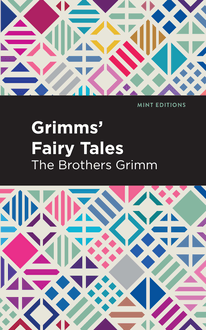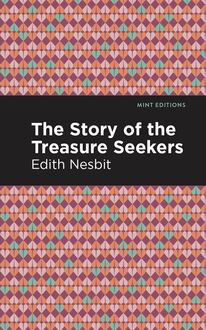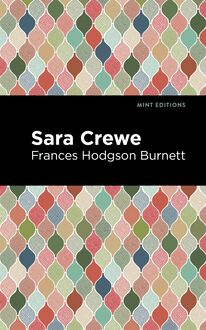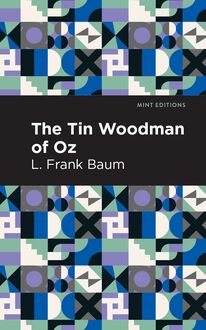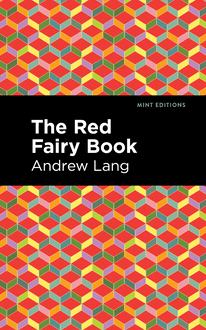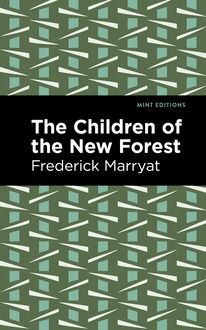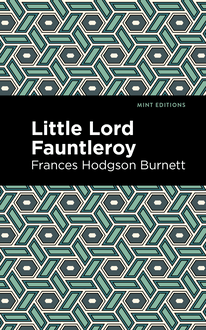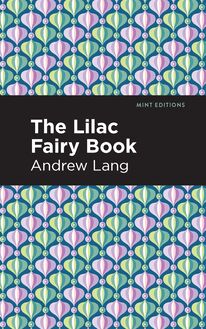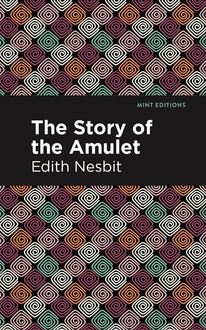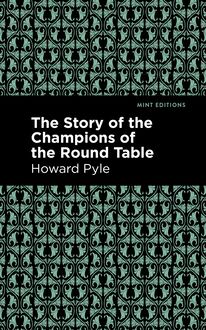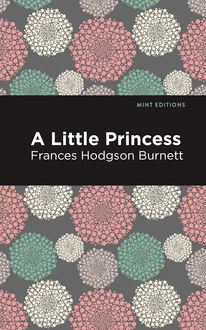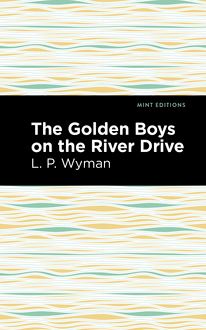-
 Univers
Univers
-
 Ebooks
Ebooks
-
 Livres audio
Livres audio
-
 Presse
Presse
-
 Podcasts
Podcasts
-
 BD
BD
-
 Documents
Documents
-
- Cours
- Révisions
- Ressources pédagogiques
- Sciences de l’éducation
- Manuels scolaires
- Langues
- Travaux de classe
- Annales de BEP
- Etudes supérieures
- Maternelle et primaire
- Fiches de lecture
- Orientation scolaire
- Méthodologie
- Corrigés de devoir
- Annales d’examens et concours
- Annales du bac
- Annales du brevet
- Rapports de stage
La lecture à portée de main
Vous pourrez modifier la taille du texte de cet ouvrage
Découvre YouScribe en t'inscrivant gratuitement
Je m'inscrisDécouvre YouScribe en t'inscrivant gratuitement
Je m'inscrisEn savoir plus
Vous pourrez modifier la taille du texte de cet ouvrage
En savoir plus

Description
The Getting of Wisdom (1910) is a novel by Henry Handel Richardson. Based on her experiences at Melbourne’s Presbyterian Ladies’ College, The Getting of Wisdom is a coming-of-age novel aimed at a young audience. Engaged with such themes as grief, bullying, and peer-pressure, Richardson’s novel is a powerful story of a young girl finding her way in the world. An instant bestseller, the novel has never gone out of print. “Laura went into her own room and locked the door, a thing Mother did not allow. Then she threw herself on the bed and cried. Mother had not understood in the least…” Punished for cutting her own hair without permission, Laura Tweedle Rambotham defies her mother once more. Alone in her room, she begins to think about her mother’s words, letting them sink in until the truth can no longer be denied. In the morning, she leaves for The Ladies’ College, a boarding school far from family and friends—and in Melbourne, no less, a city she has never been to. Scared, nervous, and tired, she drifts off to sleep in her childhood room for the last time. Heartfelt and deeply personal, The Getting of Wisdom is a powerful coming-of-age story from one of Australia’s best-loved writers. With a beautifully designed cover and professionally typeset manuscript, this edition of Henry Handel Richardson The Getting of Wisdom is a classic of Australian literature reimagined for modern readers.
Sujets
Informations
| Publié par | Mint Editions |
| Date de parution | 28 septembre 2021 |
| Nombre de lectures | 1 |
| EAN13 | 9781513293936 |
| Langue | English |
Informations légales : prix de location à la page 0,0500€. Cette information est donnée uniquement à titre indicatif conformément à la législation en vigueur.
Extrait
The Getting of Wisdom
Henry Handel Richardson
The Getting of Wisdom was first published in 1910.
This edition published by Mint Editions 2021.
ISBN 9781513291086 | E-ISBN 9781513293936
Published by Mint Editions®
minteditionbooks .com
Publishing Director: Jennifer Newens
Design & Production: Rachel Lopez Metzger
Project Manager: Micaela Clark
Typesetting: Westchester Publishing Services
C ONTENTS I II III IV V VI VII VIII IX X XI XII XIII XIV XV XVI XVII XVIII XIX XX XXI XXII XXIII XXIV XXV
I
T he four children were lying on the grass.
“… and the Prince went further and further into the forest,” said the elder girl, “till he came to a beautiful glade—a glade, you know, is a place in the forest that is open and green and lovely. And there he saw a lady, a beautiful lady, in a long white dress that hung down to her ankles, with a golden belt and a golden crown. She was lying on the sward—a sward, you know, is grass as smooth as velvet, just like green velvet—and the Prince saw the marks of travel on her garments. The bottom of the lovely silk dress was all dirty—”
“Wondrous Fair, if you don’t mind you’ll make that sheet dirty, too,” said Pin.
“Shut up, will you!” answered her sister who, carried away by her narrative, had approached her boots to some linen that was bleaching.
“Yes, but you know Sarah’ll be awfly cross if she has to wash it again,” said Pin, who was practical.
“You’ll put me out altogether,” cried Laura angrily.—“Well, as I said, the edge of her robe was all muddy—no, I don’t think I will say that; it sounds prettier if it’s clean. So it hung in long, straight beautiful folds to her ankles, and the Prince saw two little feet in golden sandals peeping out from under the hem of the silken gown, and—”
“But what about the marks of travel?” asked Leppie.
“Donkey! haven’t I said they weren’t there? If I say they weren’t, then they weren’t. She hadn’t travelled at all.”
“Oh, parrakeets!” cried little Frank.
Four pairs of eyes went up to the bright green flock that was passing over the garden.
“Now you’ve all interrupted, and I shan’t tell anymore,” said Laura in a proud voice.
“Oh, yes, please do, Wondrous Fair! Tell what happened next,” begged Pin and Leppie.
“No, not another word. You can only think of sheets and parrakeets.”
“Please, Wondrous Fair,” begged little Frank.
“No, I can’t now.—Another thing: I don’t mind if you call me Laura today, as it’s the last day.”
She lay back on the grass, her hands clasped under her head. A voice was heard, loud, imperative.
“Laura, I want you. Come here.”
“That’s mother calling,” said Pin.
Laura kicked her heels. The two little boys laughed approval.
“Go on, Laura,” coaxed Pin. “Mother’ll be angry. I’ll come, too.”
Laura raised herself with a grumble. “It’s to try on that horrid dress.”
In very fact Mother was standing, already somewhat impatient, with the dress in her hand. Laura wriggled out of the one she had on, and stood stiffly and ungraciously, with her arms held like pokers from her sides, while Mother on her knees arranged the length.
“Don’t put on a face like that, miss!” she said sharply on seeing Laura’s air. “Do you think I’m making it for my own pleasure?” She had sewn at it all day, and was hot and tired.
“It’s too short,” said Laura, looking down.
“It’s nothing of the kind,” said Mother, with her mouth full of pins.
“It is, it’s much too short.”
Mother gave her a slight shake. “Don’t you contradict M E ! Do you want to tell me I don’t know what length you’re to wear your dresses?”
“I won’t wear it at all if you don’t make it longer,” said Laura defiantly.
Pin’s chubby, featureless little face lengthened with apprehension.
“Do let her have it just a tiny bit longer, mother dear, dear!” she pleaded.
“Now, Pin, what have you got to do with it I’d like to know!” said Mother, on the verge of losing her temper over the back folds, which W OULD not hang.
“I’m going to school tomorrow, and it’s a shame,” said Laura in the low, passionate tone that never failed to exasperate Mother, so different was it from her own hearty fashion of venting displeasure. Pin began to sniff, in sheer nervous anxiety.
“Very well then, I won’t do another stitch to it!” and Mother, now angry in earnest, got up and bounced out of the room.
“Laura, how can you?” said Pin, dissolving. “It’s only you who make her so cross.”
“I don’t care,” said Laura rebelliously, though she was not far off tears herself. “It I S a shame. All the other girls will have dresses down to the tops of their boots, and they’ll laugh at me, and call me a baby”; and touched by the thought of what lay before her, she, too, began to sniffle. She did not fail, however, to roll the dress up and to throw it unto a corner of the room. She also kicked the ewer, which fell over and flooded the floor. Pin cried more loudly, and ran to fetch Sarah.
Laura returned to the garden. The two little boys came up to her; but she waved them back.
“Let me alone, children. I want to think.”
She stood in a becoming attitude by the garden-gate, her brothers hovering in the background.—Then Mother called once more.
“Laura, where are you?”
“Here, mother. What is it?”
“Did you knock this jug over or did Pin?”
“I did, mother.”
“Did you do it on purpose?”
“Yes.”
“Come here to me.”
She went, with lagging steps. But Mother’s anger had passed: she was at work on the dress again, and by squinting her eyes Laura could see that a piece was being added to the skirt. She was penitent at once; and when Mother in a sorry voice said: “I’m ashamed of you, Laura. And on your last day, too,” her throat grew narrow.
“I didn’t mean it, mother.”
“If only you would ask properly for things, you would get them.”
Laura knew this; knew indeed that, did she coax, Mother could refuse her nothing. But coaxing came hard to her; something within her forbade it. Sarah called her “high-stomached”, to the delight of the other children and her own indignation; she had explained to them again and again what Sarah really meant.
On leaving the house she went straight to the flower-beds: she would give Mother, who liked flowers very well but had no time to gather them, a bouquet the size of a cabbage. Pin and the boys were summoned to help her, and when their hands were full, Laura led the way to a secluded part of the garden on the farther side of the detached brick kitchen. In this strip, which was filled with greenery, little sun fell: two thick fir trees and a monstrous blue-gum stood there; high bushes screened the fence; jessamine climbed the wall of the house and encircled the bedroom windows; and on the damp and shady ground only violets grew. Yet, with the love children bear to the limited and compact, the four had chosen their own little plots here rather than in the big garden at the back of the house; and many were the times they had all begun anew to dig and to rake. But if Laura’s energy did not fizzle out as quickly as usual—she was the model for the rest—Mother was sure to discover that it was too cramped and dark for them in there, and send Sarah to drive them off.
Here, safely screened from sight, Laura sat on a bench and made up her bouquet. When it was finished—red and white in the centre with a darker border, the whole surrounded by a ring of violet leaves—she looked about for something to tie it up with. Sarah, applied to, was busy ironing, and had no string in the kitchen, so Pin ran to get a reel of cotton. But while she was away Laura had an idea. Bidding Leppie hold the flowers tight in both his sticky little hands, she climbed in at her bedroom window, or rather, by lying on the sill with her legs waving in the air, she managed to grab, without losing her balance, a pair of scissors from the chest of drawers. With these between her teeth she emerged, to the excited interest of the boys who watched her open-mouthed.
Laura had dark curls, Pin fair, and both wore them flapping at their backs, the only difference being that Laura, who was now twelve years old, had for the past year been allowed to bind hers together with a ribbon, while Pin’s bobbed as they chose. Every morning early, Mother brushed and twisted, with a kind of grim pride, these silky ringlets round her finger. Although the five odd minutes the curling occupied were durance vile to Laura, the child was proud of her hair in her own way; and when in the street she heard someone say: “Look—what pretty curls!” she would give her head a toss and send them all a-rippling. In addition to this, there was a crowning glory connected with them: one hot December morning, when they had been tangled and Mother had kept her standing too long, she had fainted, pulling the whole dressing-table down about her ears; and ever since, she had been marked off in some mysterious fashion from the other children. Mother would not let her go out at midday in summer: Sarah would say: “Let that be, can’t you!” did she try to lift something that was too heavy for her; and the younger children were to be quelled by a threat to faint on the spot, if they did not do as she wished. “Laura’s faint” had become a byword in the family; and Laura herself held it for so important a fact in her life that she had more than once begun a friendship with the words: “Have you ever fainted? I have.”
From among these long, glossy curls, she now cut one of the longest and most spiral, cut it off close to the root, and with it bound the flowers together. Mother should see that she did know how to give up something she cared for, and was not as selfish as she was usually supposed to be.
“Oh… h… h!” said both little boys in a breath, then doubled up in noisy mirth. Laura was constantly doing something to set their young blood in amazement: they looked upon her as the personification of all that was startling and unexpected. But Pin, returning with the reel of thread, opened her eyes in a different way.
“Oh, Laura…!” she began, tearful at once.
“N
-
 Univers
Univers
-
 Ebooks
Ebooks
-
 Livres audio
Livres audio
-
 Presse
Presse
-
 Podcasts
Podcasts
-
 BD
BD
-
 Documents
Documents
-
Jeunesse
-
Littérature
-
Ressources professionnelles
-
Santé et bien-être
-
Savoirs
-
Education
-
Loisirs et hobbies
-
Art, musique et cinéma
-
Actualité et débat de société
-
Jeunesse
-
Littérature
-
Ressources professionnelles
-
Santé et bien-être
-
Savoirs
-
Education
-
Loisirs et hobbies
-
Art, musique et cinéma
-
Actualité et débat de société
-
Actualités
-
Lifestyle
-
Presse jeunesse
-
Presse professionnelle
-
Pratique
-
Presse sportive
-
Presse internationale
-
Culture & Médias
-
Action et Aventures
-
Science-fiction et Fantasy
-
Société
-
Jeunesse
-
Littérature
-
Ressources professionnelles
-
Santé et bien-être
-
Savoirs
-
Education
-
Loisirs et hobbies
-
Art, musique et cinéma
-
Actualité et débat de société
- Cours
- Révisions
- Ressources pédagogiques
- Sciences de l’éducation
- Manuels scolaires
- Langues
- Travaux de classe
- Annales de BEP
- Etudes supérieures
- Maternelle et primaire
- Fiches de lecture
- Orientation scolaire
- Méthodologie
- Corrigés de devoir
- Annales d’examens et concours
- Annales du bac
- Annales du brevet
- Rapports de stage
